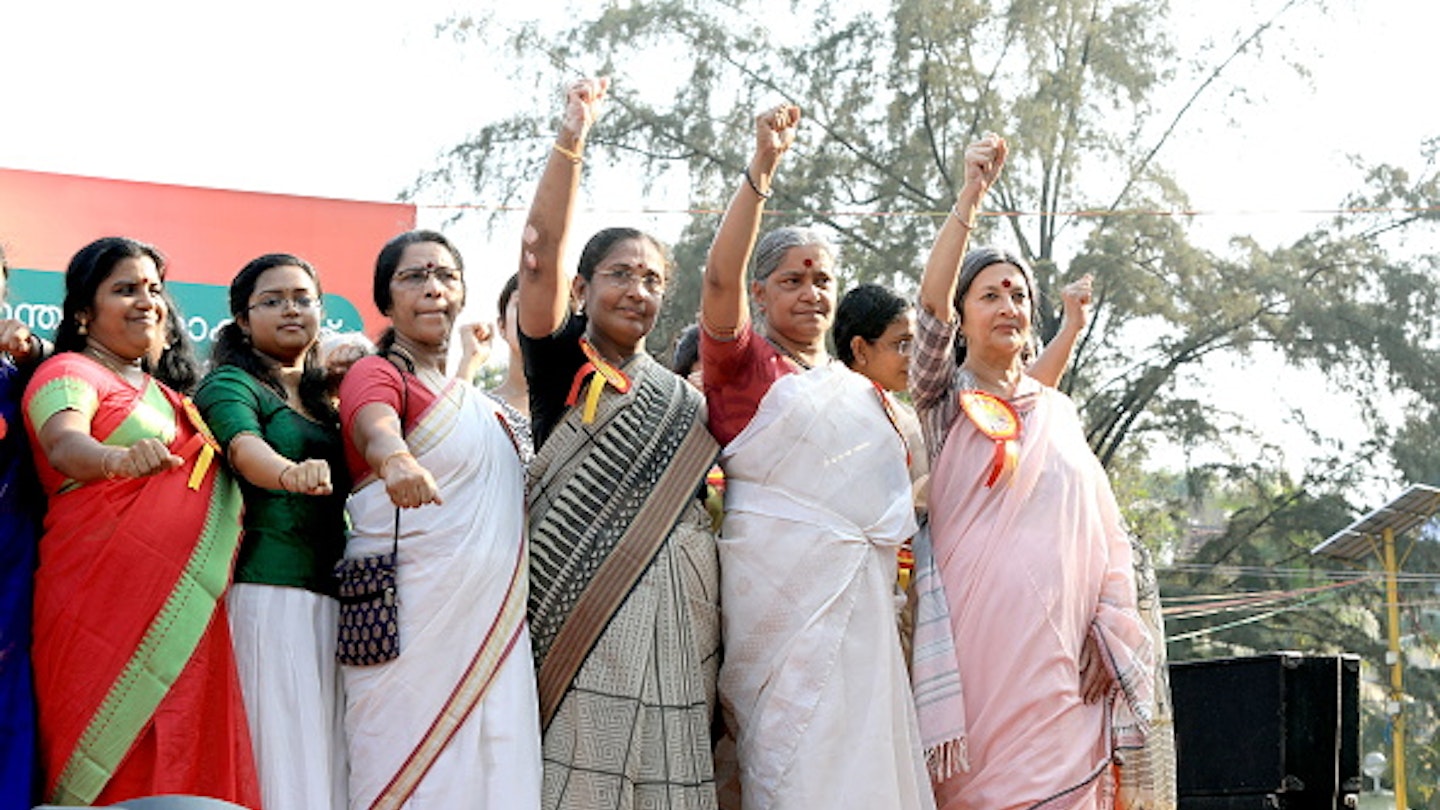Two women walk into a temple: it sounds like the beginning of an ordinary anecdote, it's not. A few hours after Police released tear gas and water cannons on crowds of protestors that assembled outside. One political figurehead tweeted that the temple being "desecrated", members of a conservative party waved black flags to oppose women entering the holy space. When they left, it was scrubbed down to "purify" it.
This happened yesterday in the state capital, Thiruvananthapuram in India. The temple is Sabarimala, a site which is widely regarded as one of India's holiest place. TheGuardian__ reports that following the entry of the two women on Wednesday morning, the temple has now been closed today by priests in protest and each of the rooms that the women walked into have been cleaned, believed to be defiled by the presence of a woman.
Yes, the story sounds pretty bleak. But you might be surprised to learn that it isn't, because what has been happening around Sabarimala in the last few days is nothing short of extraordinary, it demonstrates a seismic political shift against pervading sexist attitudes that affect women in India, and globally.
On Tuesday, over 5 million womenjoined hands around the temple, creating what has been dubbed the "Women's Wall". They formed a 385 mile-long chain to protest the religious law that has historically banned menstruating women from entering. Pictures show them standing side-by-side as they encircle the temple; pressed almost flush to the person standing next to them due to their sheer volume in a chain that held fast for 15 minutes.
This follows a lift in September, by the government, on the ban which prevented women from the age of 10-50 entering the temple. It has since triggered a flush of protests from traditionalists, many of whom belong to BJP, India's right-wing and Hindu-Nationalist supporting party which currently the ruling political party.
But the chain speaks on a much deeper level; the stigma surrounding menstruation is something that has become a battle fought globally, one uniting women no matter their age, circumstances or nationality. While this is happening halfway across the world: In the UK women are still forced pay a 5% tax on sanitary products which are considered a ‘luxury item’ by the government. One in 10 are unable to buy sanitary items altogether and are forced every month to fashion products out of tissue, toilet roll and sellotape.
Those problems are compounded when you throw much more desperate economic and social situations in other countries into the mix: feedtheminds reports that in some areas of Nepal women are made to sleep in Animal sheds during menstruation, refused food and access to clean water, and menstruating women and girls are segregated. Meanwhile in India, where the protests are currently taking place, young girls face limitations on their education because they are told not to attend school when they menstruate.
Luckily a rising movement against this discourse of periods as being dirty and shameful, as a 'luxury' we should be forced to pay over the odds for the privilege of having is showing no signs of stopping. In the UK a #freeperiods campaign started in April of 2017, led by Amika George (who at the time was studying for her A-levels) the Westminster-based protest of which was backed by over 2000 women and saw celebrities Daisy Loewe and Adwoah Aboah show up to support the cause. It's safe to say that we are all behind the Women's Wall.
